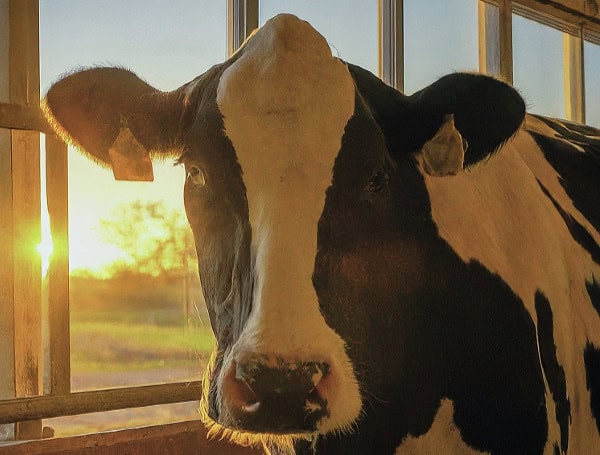In the ongoing effort to mitigate agricultural impacts on climate change, researchers at the University of Florida’s Institute of Food and Agricultural Sciences (UF/IFAS) are investigating a natural, albeit unconventional, solution: incorporating seaweed into livestock feed. This research focuses on seaweed’s potential to significantly reduce methane emissions from cows, a major source of greenhouse gases.
As cattle digest grass and hay, they produce considerable amounts of methane. Finding alternative feeds that can lessen this environmental footprint has become a priority, especially as consumer awareness and demand for sustainable food production rise.
READ :UF/IFAS To Host Florida Agricultural Policy Outlook Conference
“There has been a steady rise in concerns among consumers over environmental sustainability, and using seaweed to reduce potent greenhouse gas emissions can be an avenue toward meeting consumer preferences for the foods they purchase,” said John Lai, assistant professor of agribusiness in the UF/IFAS food and resource economics department.
However, a key question remains: are consumers willing to bear the potential extra cost associated with producing low-emission milk and beef?
Building upon existing UF/IFAS research into the environmental benefits of seaweed, Lai and his colleagues are conducting studies to test its economic viability. An early glimpse into their work on Asparagopsis armata, a species of red seaweed, was recently provided in a data illustration published in the Agricultural & Applied Economics Association’s Choices magazine. This illustration, a collaborative effort between Lai, colleague Andrew Ropicki, undergraduate student Emerson Searl, and doctoral candidate Meri Hambaryan, outlines the potential advantages and disadvantages of cultivating and using this seaweed as livestock feed.
READ: Reba Y. Mazak Named 2025 Florida Woman Of The Year In Agriculture
The red seaweed’s effectiveness in reducing methane emissions stems from its high levels of bromoform, a compound that inhibits the enzymes responsible for methane creation in the cow’s digestive system. Nutritionally, the illustration indicates that seaweed is rich in protein, carbohydrates, and dietary fibers, fulfilling the dietary requirements of livestock without negatively impacting the taste, smell, or texture of the resulting beef or milk products.
Beyond methane reduction, the environmental benefits of cultivating seaweed are manifold, notes Andrew Ropicki, an assistant professor specializing in marine resource economics.
“Relative to other methane-reducing cattle feeds, seaweed is notable for its ability to absorb nitrogen and phosphorus, which feed harmful algal blooms,” Ropicki explained. “And by capturing carbon dioxide from oceans, seaweed can counteract ocean acidification and improve water quality.”
Despite the promising benefits, challenges exist. Red seaweed can accumulate heavy metals, iodine, and minerals that could pose health risks to animals, necessitating continuous monitoring during cultivation. Logistical hurdles associated with transporting large volumes of seaweed, the energy demands of processing, and potential price volatility due to shortages also present obstacles.
READ: Moo-ve Over, Methane: University Of Florida Scientists Find Promising Feed To Cut Cow Emissions
“There are challenges, but we believe they can be overcome, and there is a potential market for seaweed cow feed,” Ropicki said.
Ropicki’s optimism is partly influenced by existing research suggesting that environmentally conscious consumers are often willing to pay a premium for sustainable products. Studies have shown potential average premiums of 4.6% for low-emission beef and a significant 62% for low-emission milk. One study even linked an 85% reduction in carbon emissions to a potential $4.23-per-pound premium for beef.
The UF/IFAS researchers are set to contribute further to this growing body of sustainable agriculture research. They plan to publish two economic studies related to seaweed-fed cattle later this year, with a third study anticipated in mid-2026. These forthcoming publications aim to provide deeper insights into the economic feasibility and market potential of integrating seaweed into livestock diets as a strategy for a more sustainable food system.
Please make a small donation to the Tampa Free Press to help sustain independent journalism. Your contribution enables us to continue delivering high-quality, local, and national news coverage.
Connect with us: Follow the Tampa Free Press on Facebook and Twitter for breaking news and updates.
Sign up: Subscribe to our free newsletter for a curated selection of top stories delivered straight to your inbox.

